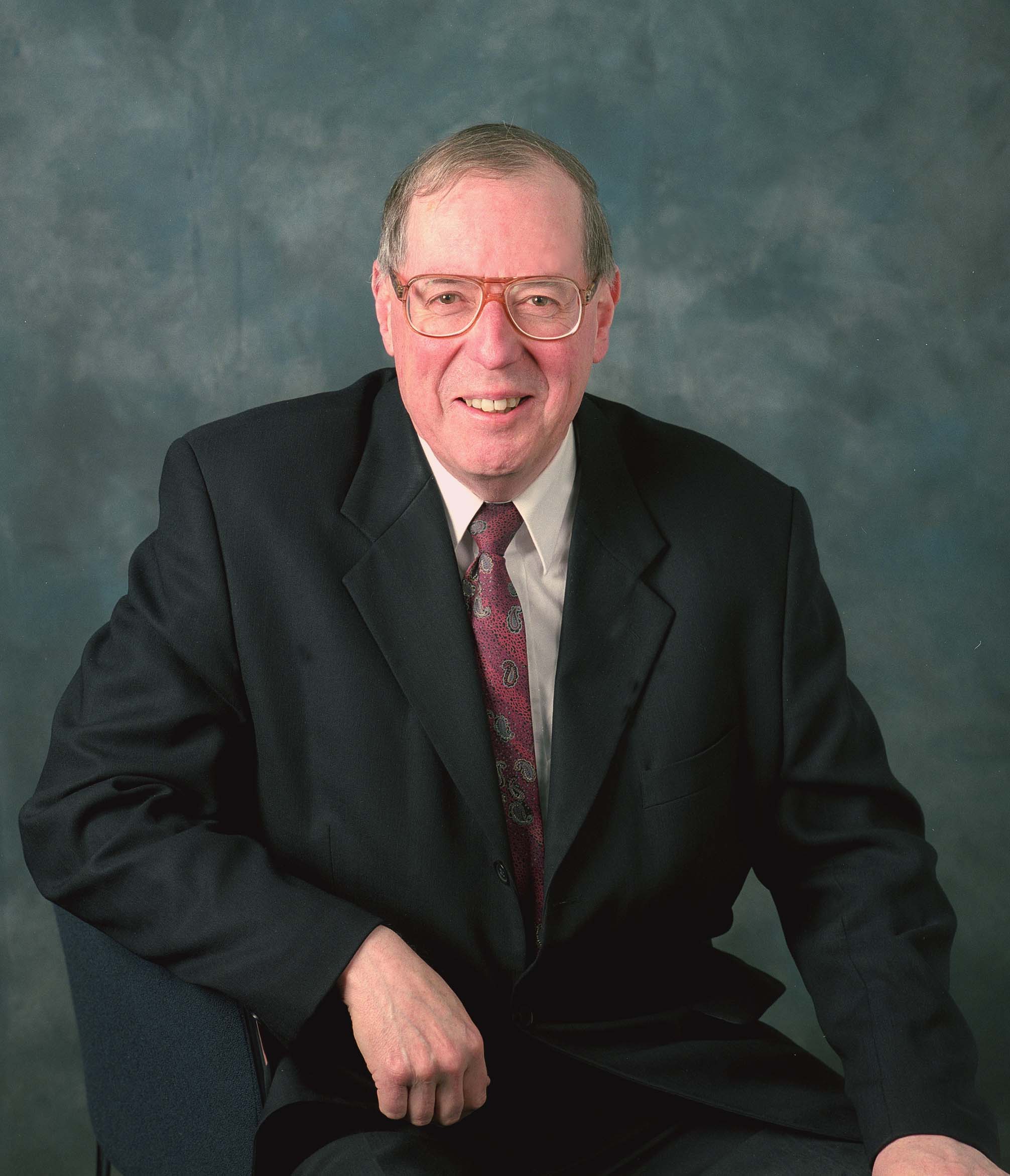Vale Emeritus Professor Phillip 'Pip' Hamilton AM
Media release
It is with sadness that the Deakin community has learned of the death of Emeritus Professor Phillip 'Pip' Alexander Hamilton AM.
An eminent astrophysicist and senior university administrator, Professor Hamilton will be remembered as a principal figure in the history of Deakin University, helping transform it into one of Australia's most accredited research universities.
Professor Hamilton was born in Launceston in 1942 and attended Launceston Church Grammar School, where he was known by classmates as 'Pip'. According to a friend from his school days, he was regarded as "the class brain" and "the boy most likely to know the answer".[1]
He continued his education at the University of Tasmania, forming an enduring association with the institution which lasted 32 years. In 1961, he earned a Bachelor of Science, and a PhD in physics in 1969. From 1965 to 1989, he held positions of increasing seniority, including Lecturer then Senior Lecturer, Reader in physics, then Head of the Department of Physics. In 1989 he was named Professor of Experimental Physics.
During this period, Professor Hamilton built a reputation as one of the world's leading radio astronomers. He specialised in low-frequency radioastronomy to study interstellar gas, particularly in relation to pulsars. In 1969, just as he was completing his PhD, he and fellow astronomers became aware of radio waves emitted by collapsing stars.
He was significantly involved in designing radio telescopes and had an instrumental role in computerising the Parkes telescope – of 'The Dish' fame – which had played its part in the first moon landing in 1969. Later, from 1989 to 1995 he was on the Steering Committee for the Australia Telescope National Facility, serving as Committee Chair for the last three years.
Commenting on his work designing telescopes, he described himself as 'half engineer'. "I'm a hands-on person," he said, "if something breaks down in the office, I'm there before anybody else with a screwdriver in the hand."[2]
In 1992, Professor Hamilton moved into research administration and was Pro-Vice-Chancellor (Research) at the University of Tasmania. In 1997, Professor Geoff Wilson – then Vice-Chancellor of Deakin University – invited him to take on the same role at Deakin: nurturing the careers of researchers and lifting the University's research activities and profile.
During an interview at the commencement of his Deakin appointment, he said about the University's research endeavours, "There is a lot of potential waiting to be developed in the research area…Deakin has focused on other priorities and it is now a matter of shifting that balance."[3]
For researchers to be successful in acquiring funding, he knew the importance of grant writing skills, particularly the aspect of story-telling:
"In seeking grants it is as important to write a good story about your research as it is to have the good idea in the first place. Winning grants is all about telling a good story."[4] In 2002 he was promoted to Deputy Vice-Chancellor (Research).
From 1997 until his retirement in 2006, he worked tirelessly to transform Deakin from what had been primarily a teaching institution into one which today has ever-growing research credentials, including helping transform the Waurn Ponds campus into what is now a globally recognised research hub.[5]
"Quality research is about outcomes," Professor Hamilton said in 2002, "and the focus should be on research that makes a difference. Research that makes a difference changes the way people think."[6]
Professor Hamilton was also a great supporter of the arts and was himself a talented amateur musician, playing organ on Sundays at All Saints Church in Newtown. During his academic career he mentored music researchers and took a serious interest in research art.
"I think that the arts and the sciences have a lot to contribute to each other. Making people see things in a new way is what research is about in any discipline,"[7] he said.
Upon his retirement in 2006, Deakin conferred on him the title of Emeritus Professor, and in the same year he was awarded a Member of the Order of Australia (AM) 'for service to tertiary education, to research in the fields of radioastronomy and astronomy, to a range of scientific organisations, and to the community'.
In 2007 Deakin awarded him a DSc honoris causa. In 2022, the University established the Pip Hamilton HDR Scholarship.
[1] The Editor,The Bravest Man I Ever Knew (Tasmanian Times, 2011)
[2] Salleh, Anna, Pulsar pioneer honoured (ABC Science, 2006)
[3] Deakin Network article (8 August 1997)
[4] Deakin Network article, ibid.
[5] Hadfield, Warwick, Professor Pip Hamilton obituary: Deakin legend, radio astronomer mourned (The Herald Sun, 2023)
[6] Deakin Network article (6 November 2002)
[7] Deakin Network article, Interview on the occasion of opening the inaugural art exhibition of the Deakin University Postgraduate Association’s Annual Research Conference (25 July 1997)

